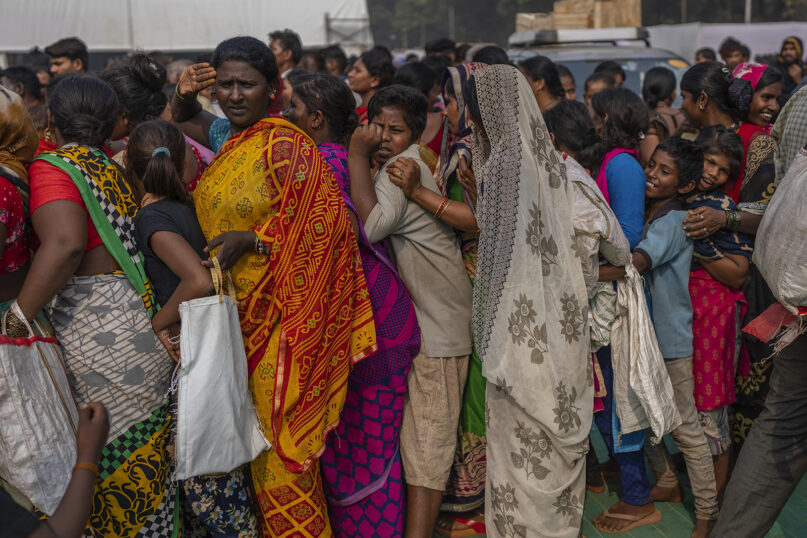(RNS) — The decision by several universities and institutions, most recently Brown University, to add caste as a listed, protected category has elicited both support and condemnation.
At one extreme are Hindu advocacy organizations characterizing such decisions as examples of a growing Hinduphobia in the United States and elsewhere. There is a disposition in these organizations to deny the reality of caste or to explain it away as a creation of foreigners or as a response to foreign presence in India. Caste structures are not static, but there is clear evidence that by 400 CE standard features of caste such as physical segregation and rules prohibiting inter-dining and intermarriage are firmly in place.
Caste is a complex social system that intersects with all dimensions of the lives of those whose identities are formed and defined by its categories and its hierarchical ordering of human beings. The value that it confers on those in its upper ranks is in relation to the devaluing of those who are regarded as lower. Devaluation leads to the perception of people as objects and not as fellow beings who feel and suffer like we do. It provides the conditions for guilt-free violence and mistreatment.
Hindu organizations need to cease the knee-jerk response of branding public discussions of caste as Hinduphobic and acknowledge the inhumanity, injustice and oppression of this system. Whatever its hoary origins, it is true that caste, despite the efforts of several Hindu teachers and reformers, perpetuated itself through religious legitimation, and many regard the practice of caste as a religious obligation. Hindu leadership is still dominated by male persons from the upper castes, who have always experienced power and privilege within the tradition. Caste assumptions continue to be deeply present in ritual and other practices.
We Hindus are not exempt from susceptibility to the corruption of power and the tendency to affirm self-value by devaluing others.
We need to move from defensiveness to listening with our hearts to those who experience the tradition as denying them human dignity and the opportunity and resources to flourish. We should not be surprised they might even wish for the annihilation of a tradition they never experienced as caring, compassionate and affirming of their equal value. Those who come from places of power and privilege in a tradition often wrongly assume the tradition that has been good to them is good for all who are born within it. We need to desist from condemning and marginalizing those who protest against caste and stop rejoicing when they are silenced.
Acknowledging the inherently oppressive nature of a hierarchical and unequal ordering of human beings, by whatever name we call such an unjust social order, and the inequitable access to resources associated with it, is necessary, but it’s only a preliminary step.
It is our moral responsibility to reach out to such historically marginalized groups and to partner with them in transforming unjust structures. This partnering must respect the right of such communities to define themselves. We must be attentive to the voices of those who experience our tradition as oppressive and unjust and as denying them dignity, power and freedom. We must be willing to hear these truths, however challenging and difficult. In the absence of such acknowledgement and attentiveness, we will continue to perpetuate teachings about caste that inflict suffering.
Causing suffering to others and indifference to such suffering are the antithesis of what the Hindu tradition advocates at its highest ethical ideal of nonviolence.
Instead of expending resources on gagging those who publicly denounce caste and branding them as Hinduphobic, Hindu organizations and leaders must give space to such voices and take seriously caste’s continuing impact in people’s lives, communities and places of work. We should also be lifting up those theological teachings of the tradition that contest the assumptions of inequality, impurity and indignity that are the foundations of caste belief and practice.
We must commend those teachings that affirm justice and the worth and dignity of every human being. These teachings are rooted in the core Hindu claim that the divine exists identically in all beings. This truth of divinity abiding in all hearts is the most fundamental source and grounding of human dignity and the equal worth of every human being. Although not consistently interpreted to challenge inequalities, this teaching is our theological antibody to caste structures.
Stated simply, we cannot honor the divine and devalue human beings. We cannot give our assent or support to any social or cultural system founded on human inequality and indignity. Our understanding of God requires diligence and discernment in identifying such systems and in articulating critiques from our theological centers.
Hindus must respond to caste as an urgent problem, as fundamentally incompatible with its most profound teachings and necessitating unanimous and unequivocal repudiation. The meaning of being Hindu must not require the demeaning and devaluing of another human being.
Hindu organizations must be truthful about caste and know that the future of the tradition depends on overcoming systems of oppression and promoting human flourishing. This is where resources and energies must be directed. Unfortunately, there is a dearth of deep theological reflection in current Hindu organizations. Such wisdom, rooted deeply in the Hindu tradition, could enable organizations to be both self-critical and constructive.
We should not miss the opportunity for a constructive discussion on caste.
(Anantanand Rambachan is the emeritus professor of religion at Saint Olaf College. The views expressed in this commentary do not necessarily reflect those of Religion News Service.)





